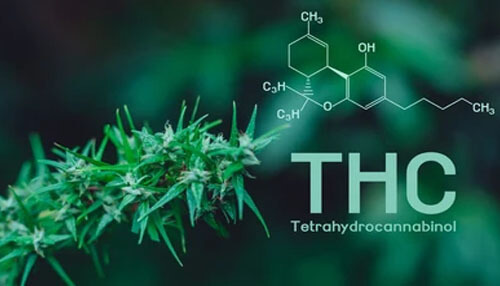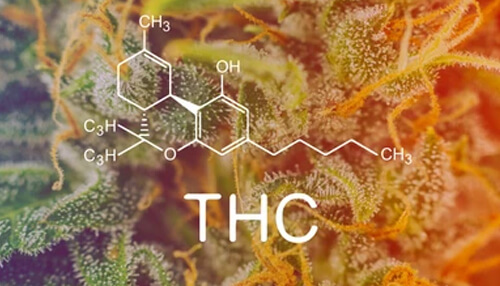Delta-8 THC is a cannabis compound that has been found to have a wide variety of medicinal benefits. It is currently the most widely studied cannabinoid and has been shown to help alleviate symptoms in various conditions, such as pain, inflammation, nausea, and more. Without this compound in our lives, we wouldn’t have cannabis-based products for these uses. Here are some things to know about delta-8 THC.
1. Delta-8 THC products have not been assessed and approved by the FDA for safe use
Despite what you may have heard or read online, there are no official studies on the safety of delta-8 THCa (THC), nor is it legal for human consumption at any level. The first study was conducted in 2008 and tested whether it could be safely used in food; however, its results were inconclusive due to other cannabinoids such as CBD.
In 2013, a study on rats showed that delta-8 THC had an anti-nausea effect when combined with delta-9 THC and CBN. This means that if you consume the correct ratios of delta-8 THC products like Delta 8 mints, tabs, and gummies, they can reduce your nausea without causing noticeable side effects.
However, this hasn’t been proven to work in humans yet. There’s also evidence that suggests delta-8 THC itself may cause feelings of paranoia, anxiety, and even insomnia. So don’t expect to feel high after consuming delta-8 THC. If you do experience any unpleasant side effects, discontinue use immediately.
2. Delta-8 THC comes from hemp
For CBD oil, cheaper is sometimes not always better because plenty of budget-friendly brands stand behind their products. To help you sort through the hundreds of brands out there, we have done the work for you. You can read more here about that.
As mentioned above, large amounts of data show that people who consume CBD tend to live longer and have fewer chronic health conditions than those who do not. This includes lower anxiety, depression, pain complaints, and fatigue. For instance, one paper found that people who had higher concentrations of CBD in their blood “experienced reduced anxiety, improved sleep, lessened joint and muscle pain-alleviating many common ailments associated with aging.”
3. You need to keep your dosage low
If you take too much delta-8 THC, you risk developing psychoactive effects, including feeling “high.” To avoid experiencing those uncomfortable sensations, experts recommend starting small and slowly increasing your dosage.
High doses of delta-8 THC may increase serotonin, dopamine, norepinephrine, and GABA blood levels. Serotonin levels may be increased because delta-8 THC inhibits an enzyme called monoamine oxidase A (MAOA). MAOA typically breaks down the amino acid tryptophan, and when it isn’t functioning properly, it causes elevated serotonin levels.
4. Delta-8 THC boosts appetite
As mentioned earlier, delta-8 THC can inhibit MAOA, making sense since MAOA plays an important role in breaking down neurotransmitters necessary for normal appetitive responses. Blocking MAOA can stimulate appetite, improve energy, and enhance cognitive function.
It should come as no surprise then that some of our favorite edible oils contain significant amounts of delta-8 THC. Our friends at Colorado-based company HempMedsPx sell their full spectrum hemp e-liquid in two flavors: sweet and savory. They both taste great, but we generally prefer the flavor and strength of the Sweet Jane vape juice. It only contains 10 mg of THC per bottle. The savory version contains 20 mg and tastes just as good. Both versions offer the same perfect ratio of cannabis terpenes and flavonoids.
5. Delta-8 THC has intoxicating and psychoactive effects
One thing to note about delta-8 THC is that it will affect everyone differently. Some people report a strong euphoric effect, while others find themselves more anxious or irritable.
Also, remember that these effects are not dose-dependent; the lower the amount of THC, the milder the reaction. This means that it may not matter whether you consume 1 ml, 5 ml, or 50 ml of vape juice containing delta-8 THC.
It also seems to vary depending on what you’re consuming. Cannabis flowers with higher concentrations of cannabinoids tend to produce more intense experiences, but the vaporized flower is usually less potent than edibles and tinctures.
6. Delta-8 THC products often involve the use of potentially harmful chemicals
Vaping flowers and concentrates have become increasingly popular among consumers interested in using marijuana. But many of these people don’t understand all of the potential health risks involved. And this lack of information is putting them at risk.
There’s the issue of contaminants present in cannabis products and vaporizers, for starters. According to researchers at the University of New Mexico, most conventional vape cartridges contain fillers such as propylene glycol and polyethylene glycol, which prevent leaks and dry out nicotine. These substances are linked to respiratory issues, skin irritation, headaches, and allergic reactions. Many users believe they are harmless, but they aren’t.
7. Delta-8 THC consumption can lead to psychotic events
In 2013, British newspaper The Guardian reported that “excessive marijuana use may cause psychosis, bipolar disorder, and other psychiatric conditions.” One study showed that heavy pot smokers were twice as likely to experience psychotic symptoms than non-users. People who started smoking while still teenagers had an even greater likelihood of developing psychosis.
Interestingly, cannabis growers worldwide seem to know exactly when they should harvest the plants. Scientists say that THC levels increase after a certain point during the flowering cycle. That would mean that cannabis products taken before the buds start to grow, especially if taken daily, could put users in danger of experiencing negative side effects related to mental illness.
Another concern involves pre-existing illnesses. While most medical experts agree that marijuana isn’t a cure for anything, many feel the drug should be available to patients suffering from nausea during chemotherapy treatment. However, since the U.S Food and Drug Administration (FDA) doesn’t recognize the medicinal properties of cannabis, it wouldn’t be able to approve any new treatment based on the evidence gathered by researchers.
8. Delta-8 THC products should be stored away from children and pets.
The FDA has strict rules regarding the labeling of cannabis flowers. First off, you need to make sure your product is free of pesticides and fungicides. Then, you need to label what percentage of THC content it contains. You also need to list the type of terpenes, so parents know whether their kids will have trouble sleeping after consuming the product. It’s important to note that some states have specific laws requiring additional labeling details, like an indication of allergens or possible carcinogens. You can check a study on hhc vs delta 9.
In conclusion, delta-8 tetrahydrocannabinol is undoubtedly one of the common drugs known to man. However, the truth is that we don’t fully understand just how safe it is or why it might affect our bodies differently than other forms of recreational drugs. There are also questions surrounding the potential risks associated with this highly regulated substance. As more research is conducted, we hope to understand both sides better.



